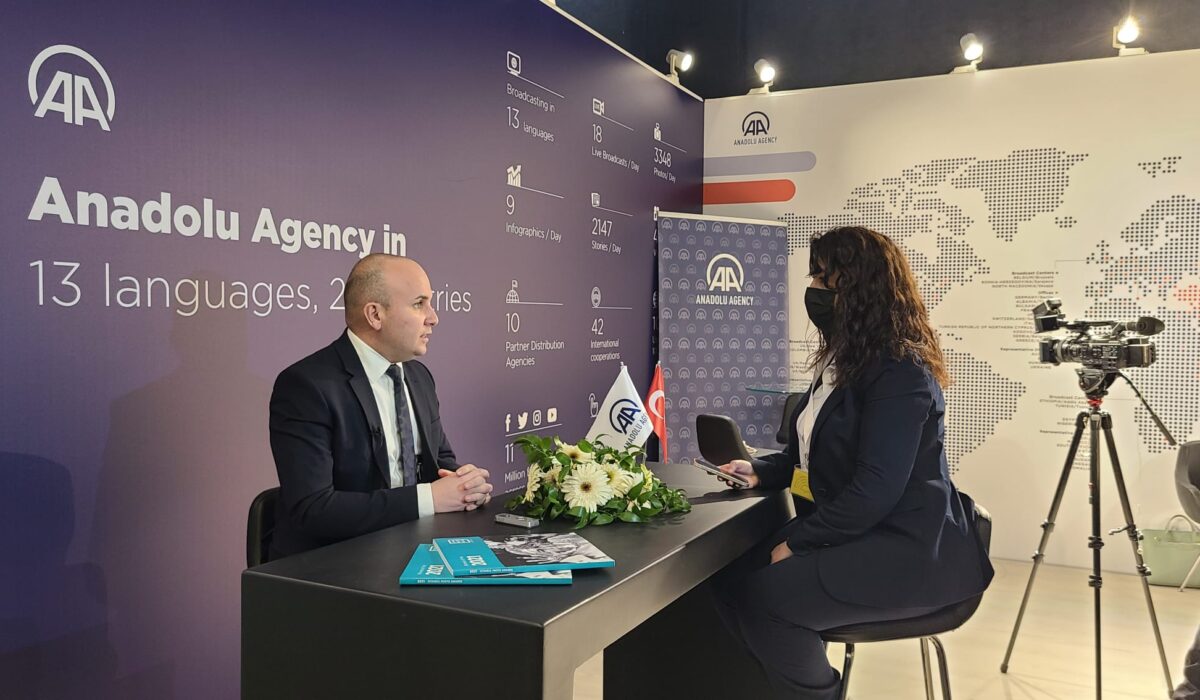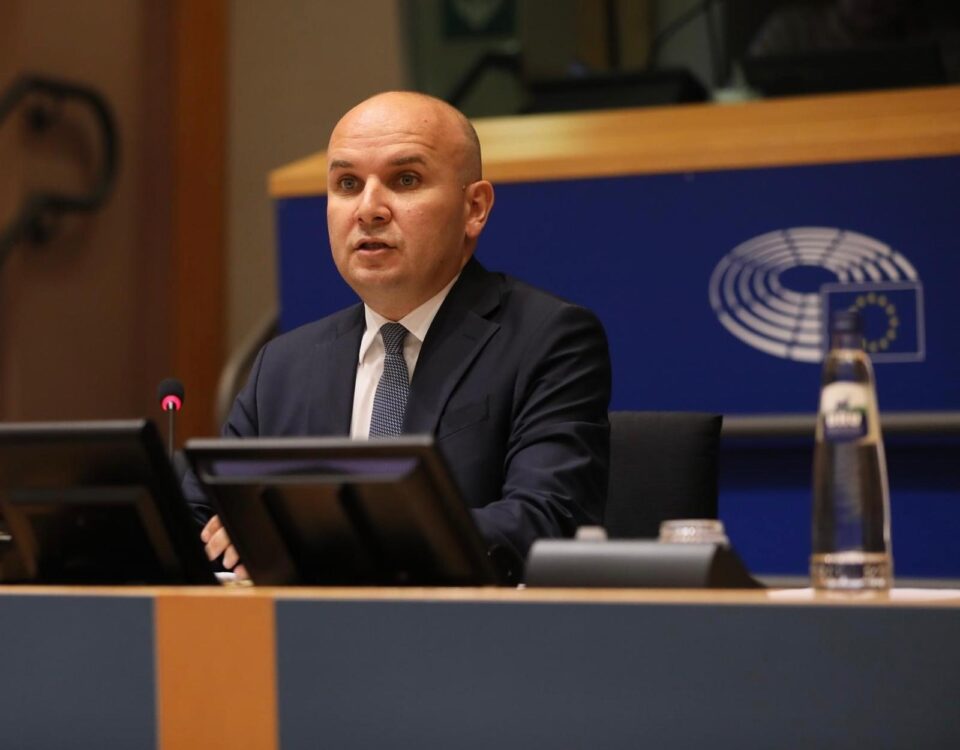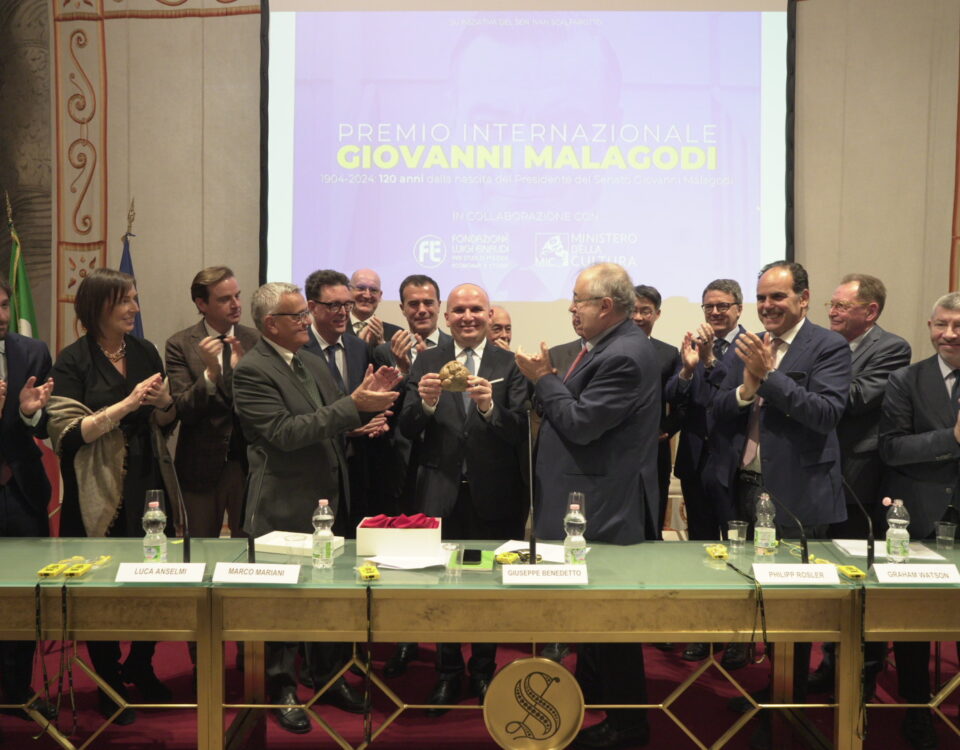
Liberals insisting for Ukraine’s European perspective
February 28, 2022
Илхан Кючюк: България трябва да бъде много по-активна в международния диалог, за да може през дипломатически усилия да прокарва своя интерес
March 16, 2022“The only way to have a solid region without fragilities and ethnic conflict is the reconciliation of the region, which will go through the process of European integration,” Ilhan Kyuchyuk, a Renew Europe MEP, told Anadolu Agency on the sidelines of the Antalya Diplomacy Forum in southern Turkiye.
The three-day high-level event in the resort city of Antalya has brought together participants from 75 countries, including 17 heads of state, 80 government ministers, and 39 representatives of international organizations. Anadolu Agency is the forum’s global communications partner.
Kyuchyuk called for “genuine aspirations” for the bloc’s Eastern Partnership countries amid Russia’s war on Ukraine.
“I strongly believe that we should support the genuine aspirations of countries from the Eastern Partnership,” he added, referring to a joint initiative involving the EU and six former Soviet republics: Armenia, Azerbaijan, Belarus, Georgia, Moldova, and Ukraine.
“More than that, we strongly should support the aspirations of people of Ukraine to belong to a free and a secure world,” Kyuchyuk, an MEP from Bulgaria, said.
Noting that he has never subscribed to the argument of the EU “being a Christian or being a co-op for particular countries,” Kyuchyuk said: “The European Union is one of the ways to preserve the country, but also to give a perspective for the next generation.”
“That’s why together with my colleagues from Renew Europe, we had an article asking for a fast-track procedure for Ukraine, but also countries like Moldova and Georgia,” he added.
The article, “Why Ukraine deserves fast-tracked EU membership,” was published on Monday, a few days into week two of Russia’s war on Ukraine, by a group of Renew MEPs in the European Parliament.
“The collective EU institutions should respond to Ukrainian President Volodymyr Zelensky by granting Ukraine formal candidate status as soon as possible,” it said, referring to Zelensky’s plea for the bloc to suspend normal procedures and admit his country – a prospect Russia has said it opposes.
“Every day, Ukrainians are fighting and dying for European values. The least they deserve is a credible perspective of membership,” he added. “Along with military aid and humanitarian assistance, Ukraine needs hope, a vision of a shared future in the European community.”
Turkiye-EU relations’ ‘ups and downs’
Describing Turkiye-EU relations in recent years as having experienced “ups and downs,” Kyuchyuk said: “But certainly when it comes to issues like security, migration, Turkey is a great ally of European Union.”
Turkiye’s execution of the March 2016 migrant deal with the EU is widely credited with stemming a surging migrant crisis, and Turkiye has touted its success in defending its borders – also the EU’s de facto frontier.
“I do support deepening the relationship with Turkey, particularly when it comes to the Customs Union and visa liberalization,” he said.
Turkiye has long argued that the 1995 Customs Union deal with the EU is long overdue for an update, for the benefit of both sides. It also accuses the bloc of breaking its promise to eliminate visa requirements for Turkish citizens visiting the EU, a pledge under the 2016 migrant deal.
“Already we have 82,000 students, Turkish students traveling every year to EU member states, we strongly engaged with them,” Kyuchyuk said. “I think every engagement when it comes to people-to-people contact exchanges between universities, academia studies, it’s helpful, it’s productive, and it will add to bring a new dynamism in the relationship between European Union and Turkey.”
On the 2016 EU-Turkiye migration deal, Kyuchyuk said: “That agreement was so heavily criticized by European institutions. But that is exactly that agreement. It’s so much appreciated nowadays because it works quite well.”
The deal, he continued, “is the main pillar of our relationship between two sides. I would encourage the European Union to fulfill its obligations but also I would encourage and engage with Turkey to have a stronger relationship with European partners.
“Rightly so, (as) they belong to the European continent historically (and) geographically, but that is a slogan, just a simple slogan, and I want to go beyond that,” he added.
“We need a historical relationship but also we need to give a perspective to those countries,” he said.
Turkiye applied for EU membership in 1987 and its accession talks began in 2005. But negotiations stalled in 2007 due to objections of the Greek Cypriot administration, as well as opposition from Germany and France.
Тази публикация е достъпна и на следните езици: Bulgarian




